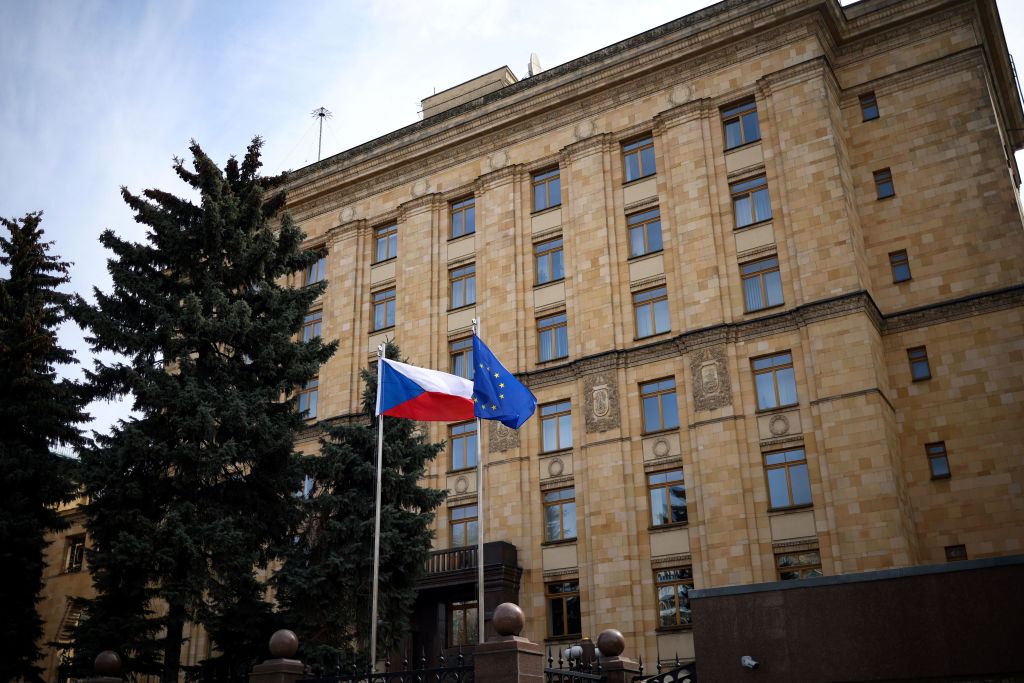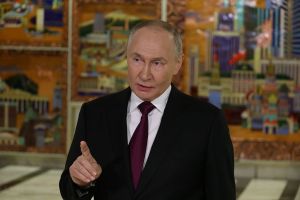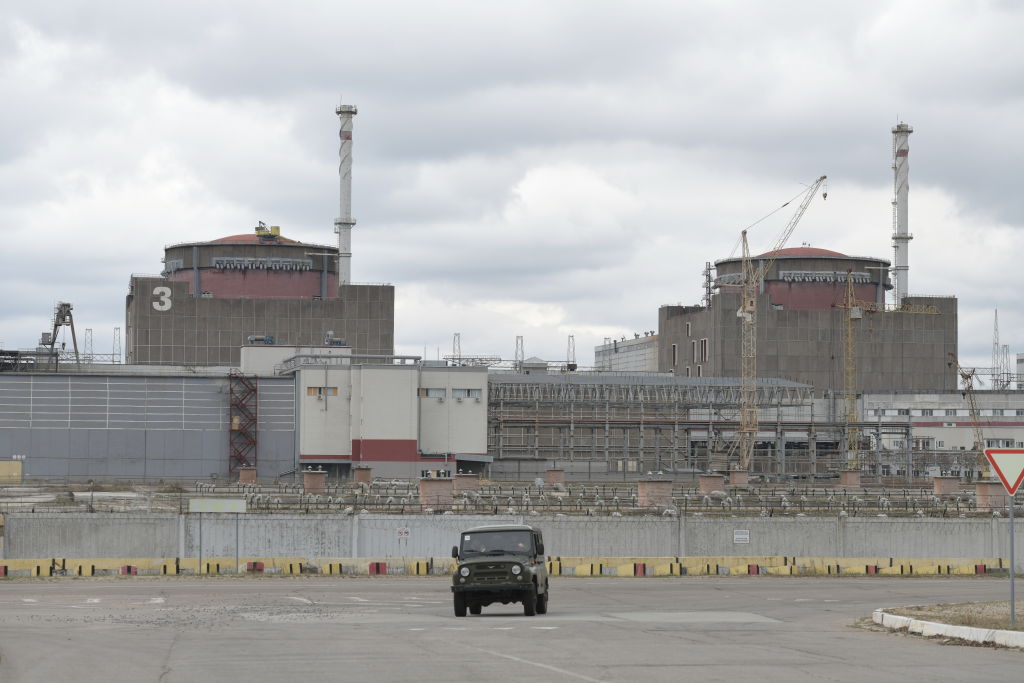The discovery by Czech intelligence services that a bombing of an ammunitions and weapons depot in 2014 that killed two people was carried out by the same Russian agents responsible for Sergei Skripal’s poisoning in 2018 is the latest act in the ongoing drama between the Kremlin and the West — one that has been intensified by the Czech president’s inability to blame Russia for the attack and the lack of allied support for the Czech Republic.
The two men who bombed the ammunition site used the same aliases as they used to enter the UK and travel to Salisbury almost four years later — ostensibly to visit the city’s 123-meter high cathedral. In 2018, ‘Alexander Petrov’ and ‘Ruslan Boshirov’ were dispatched to eliminate Skripal for spying on behalf of the UK; their 2014 target was a shipment of military supplies in the eastern Czech village of Vrtebice, allegedly intended to be sent to Ukraine, which at the time was engaged in some of the heaviest fighting against Russian forces and their separatist allies.
Prague has acted on the revelation by expelling 18 Russian ‘diplomats’ — although in truth they are suspected operatives for either the GRU or SVR intelligence agencies — from their embassy, and Russia returned the gesture in kind shortly afterwards.
However, the situation in Prague has developed very differently to the Skripal attack. When the UK pursued a similar course of action to the Czech authorities in expelling Russian embassy personnel, allied countries followed suit in solidarity and withdrew the diplomatic status of a total of 342 Russians — this has not happened for Prague.
The issue is being felt keenly by pro-Western Czechs as their president, Milos Zeman, has made little secret of his Russian sympathies during his time in office. This week, he suggested that Russia might not be to blame for the explosions, and that it might have been caused by the ‘inexpert handling of explosives’. Only two weeks ago the Czech prime minister had pointed the finger of blame squarely at Moscow.
Petr Kolar, the former Czech ambassador to Sweden, Ireland, the US and Russia itself, explains that the current crisis is further fueling public misgivings over President Zeman’s allegiance:
‘There is a lot of speculation in the country that the president and his accomplices have somehow negotiated with Russia; fingers are being pointed at the long period that our government gave the expelled Russian diplomats to leave the embassy — until the end of May. Some speculate that this is the time window afforded to President Zeman to establish his own cabinet, which would be more friendly with Russia than the current government. Amongst the public, it’s quite striking to see that there is an overwhelming consensus that Russia indeed poses a threat to our country, that what Russia did in Vrtebice was an act of state terrorism.’
It has also highlighted the the need for the West to stand in solidarity with Prague, even if the Czech diplomatic effort has so far fallen short. Jakub Kalensky, a senior fellow at the Atlantic Council, has pointed out that ‘unlike the Skripal poisoning case back in 2018, where we saw a coordinated response from the West, in this case nothing seems to have been coordinated beforehand.’ ‘The show of support from certain countries is more on a voluntary basis than a result of pre-negotiated diplomatic approach from the Czech side,’ he says.
In the wake of the Skripal attack, both the UK and US imposed further sanctions on Russia, just as they had in the wake of Moscow’s military action against Ukraine in 2014.
This has been of particular concern for people like Sen. Marek Hilser, a leading opposition figure and former presidential candidate. ‘We need to be supported by the EU and Britain in putting sanctions on the Putin regime,’ he explains. ‘But these must be against the specific people of the Putin regime. The only way we can influence this regime is the way who surround Putin — and these people are very interested in being in Europe, in having property, in making investments. If we don’t allow them to be in Europe, they will lose their way of life, which I am sure is the weak point. General sanctions don’t help that much: we must be specific. We shouldn’t have sanctions against the Russian people.’
The tension between Prague and Moscow has resulted in the exclusion of Russian energy company Rosatom from the proposed expansion of the Dukovany nuclear power plant. The Dukovany facility had already been a politically thorny issue, as had the attempted purchase of Russian-made Sputnik COVID-19 vaccines; arguments over both resulted in President Zeman replacing anti-Kremlin ministers with more agreeable figures.
What might be at stake beyond Zeman’s administration or even relations between Moscow and Prague is the Kremlin’s perception of Western unity. With the COVID-19 pandemic continuing to present new difficulties, Europe, Britain and America might be forgiven for not initially reacting in the same way as after the attempt on Sergei Skripal’s life. Yet solidarity within the West would not only send a firm message to the Kremlin, but also to the Czech people and its pro-European factions; with Russia’s tendencies still demonstrably bellicose, a show of commitment from the West to its newer family members would be a prudent step.
This article was originally published on The Spectator’s UK website.

























